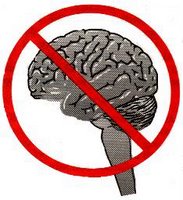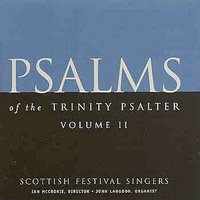Another part of the difficulty stems from a truth I learned from Pastor John Piper:
right thinking leads to right living. If I think
orthodoxically about an issue, this will produce the fruit of
orthopraxy. I cannot worship Triune Jehovah in the way He requires me if I view God as small, weak, insipid, or glum. I must think correctly before I can serve/worship/love the Lord as I ought. This is really focusing in on a swell of New Testament texts that highlight the importance of the life of the mind in the Church and individual disciples (e.g., John 13:17; Romans 12:1 - 2; Colossians 3:1 - 4).
How this plays into the problem is that Piper's teaching and these texts (primarily) establish a relationship between head and heart, mind and affection, reason and passion. There really is a pipeline running between these poles, and the ore it carries
in theory is supposed to affect each other... or at least affect the heart. (Another interesting

noetic trailblaze would be to ponder what quality and amount of content-laden ore
ought to flow from heart to head. It seems that, for the most part, this activity is taken for granted and not critically analyzed by most of America/Western world.)
To restate the problem:
The things I know I ought to do, and indeed, the mental equipment to execute that raw data, is not making it to affections (the engine?), far too often. Trusting God's promises, prayer,
ANTHEM... in general, mortification practically applied, is not being fervently enacted in the heart, which is to say
I do not wish nor will to do the things part of the ego
is, does, and should be/do.Just in case some of you are not tracking with me right now, let me make explicit two enthymemes to my syllogism:
- God primarily wishes to be worshipped and served from our hearts (i.e., the biblical/theological connotation for the seat/center of our affections, being, etc.)
- God primarily accesses our hearts not
directly immediately (without medium), but rather through (mediated by) the mind
I take both of these for granted. At the end of the post, I'm going to ask for feedback and help, so if you think these presuppositions aren't warranted, that's the time to say so. Keep them in the back of your mind.
Now, it seems plausible to me that, given the seemingly universal experience of man in this dilemma, and; given the presuppositions above (especially #2), the Bible is (A) not ignorant of this troubling phenomena I have described here, and (B) is not wholly silent on dealing with this issue.
I think (A) will be readily accepted by any readers. However, (B) may need to be qualified. I am quick to admit that the
modus operandi the Scriptures impose may be very wide ranging, and could encapsulate concepts as
simple as obvious as loving Jesus (John 14:15), to something very specific and efficacious. Personally, I'm hoping for the latter. I would love to see, from the Scriptures, imperatives that would cast light (perhaps not seen before?) on this issue.
I will close with a "for instance." One idea that has ruminated around my gray matter for awhile is the concept of
zeal. In the Scriptures, ζηλόω carries connotations of hot, passion, intensity, earnestness, and zeal. Pronounced
dzay-law-oh, we get our "zealot" from this. In the New Testament, it is often translated "earnestly desire" (I Corinthians 14:1) or just "zeal." This is the concept that is used when Phinehas, overcome with zeal for God's holiness, drives a spear through a Jewish man fornicating with a Mideanite woman (Numbers 25:6 - 15). I would love to have that sort of mental
and emotional response to the sin in my life, or to act in the moment of hesitation! What a gift! Phinehas sees a situation (the detestable, inter-racial fornication), cognitively processes this as a heinous sin of great magnitude, and
in zeal, translates this into an emotional response that leads
to taking lives. This has both the cognitive (mental) and emotive (affectional) responses I'm looking for.
Thus, on this model, more thorough study into zeal would be necessary: how it is used in both Testaments, how it is cultivated, what
isn't zeal, etc. These things would be taught to our congregations and in our seminaries - we would pray for zeal, seek to stir one another up in zeal, cultivate it communally - all for the holiness of the church for the glory God.
Nevertheless, I am not convinced zeal is the rubric I'm seeking. What, for example, causes the pipeline to start flowing in zeal? Isn't it an emotional response in the first place? If so, we are now in a circular trap.
That is where you come. How can we think about joining head and heart? Does zeal have merits I do not yet see? Are my presuppositions on track? All responses and thoughts are welcome. I look forward to reading your thoughts. No doubt, the initial step is to plead with God's Spirit that He not abandon His people to their sins, and that they seek His face in this issue.
Kyrie eleison.





























































